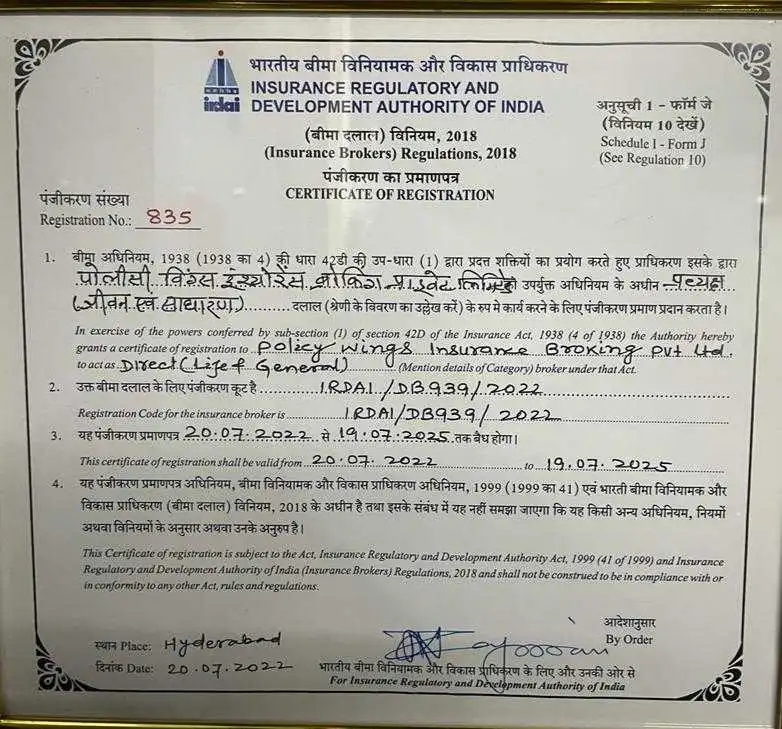Role of Workers’ Compensation Insurance for Employees’ Safety
No doubt, the nature of the workplace has changed and is filled with a stiff competitive nature. Both the employees as well as the employers have issues relating to safety in work. Despite all cautions, preventions, and carefulness, accidents and injuries still creep in. It’s just at such a time when workers’ compensation insurance offers an oasis to the workers, most particularly in terms of financial and medical benefits received to recover from injuries. It is what rescues the employees injured at work from all varieties of financial pressures resulting as a result of injuries, proper care, and eventual return to work. This would thus demystify the function of workers’ compensation insurance, its benefit to employees and why it remains such an important constituent part of protection in the workplace.
Understanding Workers’ Compensation Insurance
Workmen’s compensation insurance is that form of insurance that pays the employee if he suffers an injury or falls ill in the working period. It is a requirement for employers to have it since it is the mechanism of safeguarding for their workers. No-fault insurance is that form of insurance whereby nobody, not even the culprit, has the right to interfere with the eligibility of the employee.
Its primary purpose is the provision of protection towards the medical and financial protection of the worker in case he, by chance, gets hurt at work. With this assured pay-out, most workers give up their right to go to court for negligence-this is why some consider this as a two-way street.
What Does Workers’ Compensation Insurance Offer the Employee?
Worker compensation insurance essentially provides benefits indispensable to the workers, which are totally needed to give protection against financial shocks as well as health when at work. So, let’s work out how that works out in this insurance as a guard for the employees:
- Medical Benefits
The injured worker must be offered the appropriate prompt and effective medical care. Worker’s compensation insurance covers whatever aspect of the process is owned by treatment-hospital visits, surgeries, physiotherapy, and rehabilitation. In that respect, this way workers do not bother about how they can settle the expenses but focus on the kind of medical treatment that they need. Savings to the concerned worker of such medical expenses of the injured worker therefore saves them from worrying about the pressures of meeting financial responsibilities when they ought to be concentrating on recovery.
- Wage Replacement
Most injuries in the workplace prevent an employee from working, thereby reducing their salary for the period of recovery. Compensation insurance for workers usually covers wage replacement benefits. Normally, these are a share of the lost wages that the employee may be missing in the period they cannot be at work. For most cases, this will amount to some two-thirds of the lost salary; that is to say, this will nearly be enough for rent, bills, groceries, and everything else when the recovery begins. It is very fundamental wage replacement because it poses a challenge to the finances of the injured workers and their family members.
- Disability Benefits
When a worker suffers permanent or temporary disability at his place of work, then disability benefits occur. The number of benefits relates to the extent and nature of the disability and helps the employee to control long-term needs about finances. This pertains to four forms of disability benefits: temporary total disability; temporary partial disability; permanent total disability; and permanent partial disability. In this regard, disabled employees may at least have a continued stream of income if they can never return to their jobs due to injuries.
- Vocational Rehabilitation
Where employees cannot be restored to their previous position due to an injury, a package for an injured employee is likely to provide vocational rehabilitation for coverage. This is achieved by creating job retraining and new skills that may enter a new role or even a completely different type of occupation altogether. Vocational rehabilitation also allows an injured worker to eventually be integrated back into the workforce while attaining some degree of financial self-sufficiency, though he will likely not do the type of work that he did prior to the injury.
- Death Benefits
In the event of a workplace accident and loss of life by an employee, workers’ compensation insurance benefits death at work by giving death benefits to the dependents of the victim employee. Funeral expenses are typically covered and their dependents economically empowered with some financial support going on to be relieved off pressure families undergo during such moments of pain.
Workers’ compensation and workers’ rights: the legal perspective
This varies from state to state; however, in most jurisdictions, the intent of workers’ compensation laws is to provide for a fair and efficient method of providing benefits to their employees. In most jurisdictions today, employers are legislated to obtain workers’ compensation insurance. Failure to have may result in fines or penalties as well as criminal action by the law against the employer.
Workers’ compensation laws also have a no-retaliation provision against the workers. In the exercise of applying for workers’ compensation, his employer would not sack him, relieve him, or persecute him because of filing the claim for workers’ compensation. In this way, the apprehension about losing one’s employment due to reporting injuries and claims for compensation can be thwarted from cropping up among the staff members.
Why Workers’ Compensation Insurance is the Way to Employee Safety
The origin of workers’ compensation insurance gets a rescue to the workers, mainly the vulnerable risky and physically demanding ones. According to this view, the cost of accidents will be borne by the insurance company, or instead not borne directly by the employee since they would not incur any liability either from lost wages or medical costs. This therefore ensures safety at the workplaces, mainly compelling the employers to ensure a safe working environment since fewer accidents and claims will mean a low cost for handling such cases.
Workers’ compensation insurance also guards the interest of employers as it prevents the possibility of costly litigations. If there were not such a system in place, workers injured would drag their employers to courts for judicial remedy, and all this would result in a lengthy and expensive trial in courts. The no-fault characteristic prevents workers’ compensation from happening and instead makes provision for a hassle-free process toward injury cases at work.
Workers compensation insurance protects employees fully against financial loss derived from a work injury or disease. This kind of insurance covers the cost of medical care, loss of wages, and all benefits associated with disability or rehabilitation for work and death. This makes it possible for the employee to recover without much tension. Besides that, it gives legal immunity against any form of retaliation by your employer, which might make your rights even better than ever.
In short, workers’ compensation insurance works to create a safer and more secure working condition in which workers feel free to perform their work without any fear of a workplace injury that may bring about serious financial ruin. According to this, the system benefits both employers and employees, thus forms part of any working condition.








